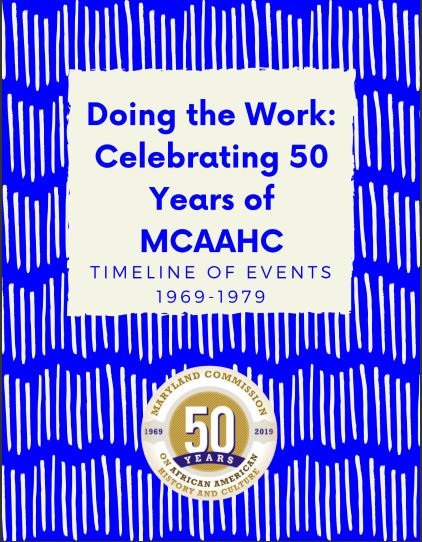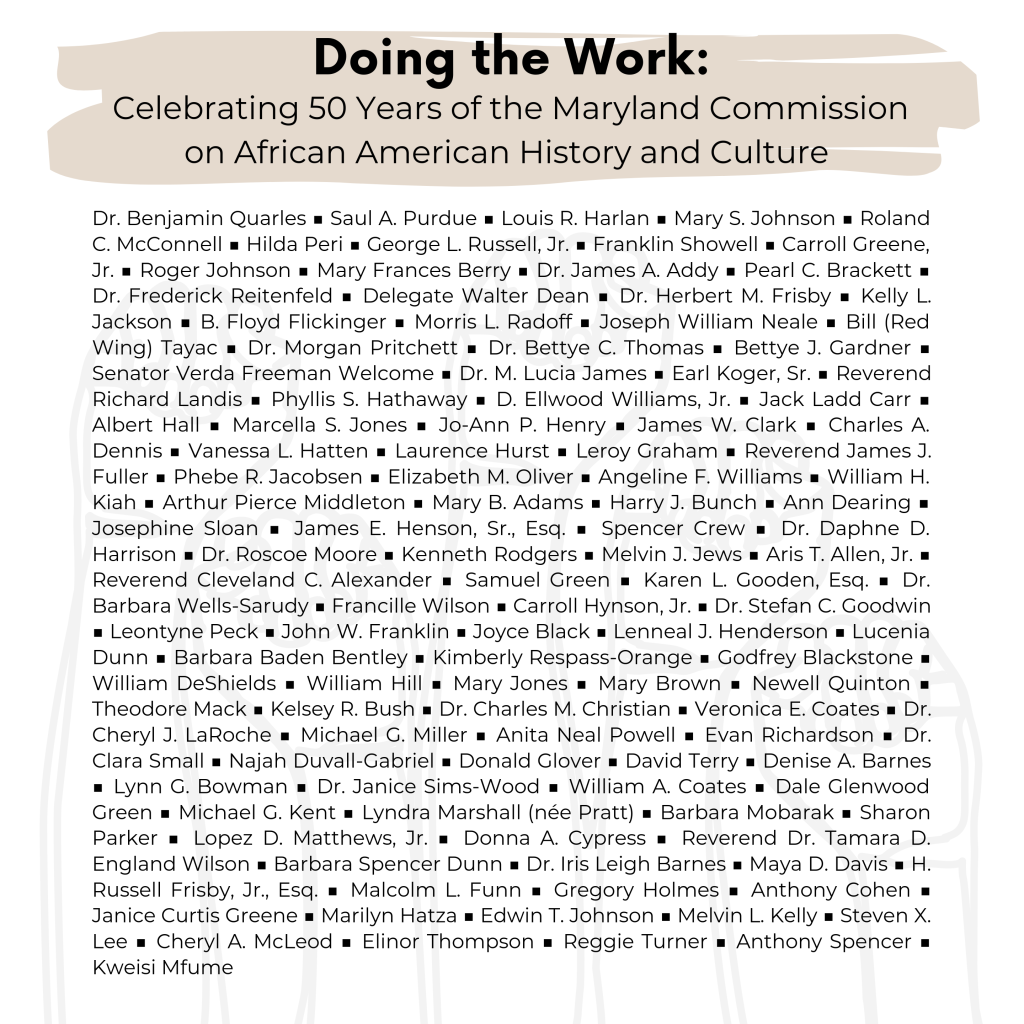About
Mission
The Maryland Commission on African American History and Culture (MCAAHC) is committed to discovering, documenting, preserving, collecting, and promoting Maryland’s African American heritage.
The Commission also provides technical assistance to institutions and groups with similar objectives. Through the accomplishment of this mission, the MCAAHC seeks to educate Maryland citizens and visitors to our state about the significance of the African American experience in Maryland.
Governance
The Maryland Commission on African American History and Culture (MCAAHC) consists of 21 members appointed by the Governor with the advice and consent of the Senate for a term of four years. Each appointee is required to:
- Have knowledge of African American history and culture,
- Be sensitive to the challenges faced by minority communities, and
- Be connected with agencies working to integrate minority history into the history of Maryland and our American culture.
The MCAAHC is responsible for:
- Operating the Banneker-Douglass Museum, Maryland’s official museum on African American history and culture.
- Operating the African American Heritage Preservation Program Grant, the state’s annual $5 million dollar capital grant program; administered in partnership with Maryland Historical Trust (MHT).
- Operating the Dr. Walter Hill Fellowship in Archives, a fellowship designed to encourage and support the study of African Americans in Maryland and/or the participation by African Americans in the field of archival science.
History
For over 50 years, the Maryland Commission on African American History and Culture (MCAAHC) has authentically preserved and presented Black history and culture as a tool for racial equity, community empowerment, and social change.
The MCAAHC was founded in 1969 as the Commission on Negro History and Culture under the leadership of Maryland Senator Verda Freeman Welcome (the first Black woman senator in Maryland), assisted by Dr. Benjamin Arthur Quarles, Morgan State University Professor of History (and founding Chairman of the Commission). Her vision was to develop a state commission to preserve and present Black history to inspire communities and help uproot racism in Maryland. The Commission established the Banneker-Douglass Museum (BDM) in Annapolis in 1984 to help carry out this vision. Today, the mission of MCAAHC is needed more than ever. Our nation is in a new resurgence of social justice, and everyday people of all backgrounds are making equitable and positive changes in their communities. MCAAHC is at the forefront of these collective efforts.
MCAAHC serves as a model for historic preservation and is a tremendous state resource. As the nation’s 1st ethnic commission, MCAAHC inspired the legislation for over 10 state African American and 75 ethnic commissions throughout the nation. MCAAHC makes history as the only African American state commission in the Nation to operate a museum. The BDM is a state treasure – listed on the National Historic Preservation Registry and an Underground Railroad Network of Freedom site. Named the best attraction to visit in Annapolis as stated by U.S. News and World Report, BDM’s permanent exhibit “Deep Roots Rising Waters: A Celebration of African Americans in Maryland” and temporary exhibits attract visitors of all ages and backgrounds. This 11,700 square foot facility is also the home to 12,000 historical objects, a museum library, exhibit, and performance space. In addition, to address equity gaps in preservation grant funding, in 2010, MCAAHC partnered with Maryland Historic Trust to develop the AAHPP grant to support African American Heritage capital projects across the state of Maryland.
Doing the Work: Celebrating 50 Years of MCAAHC



